Results
-
£179.99
Pastorale Symphonique - Jacob de Haan
Jacob de Haan has composed a very interesting concert work with Pastorale Symphonique. Through music the composer reflects on one of today's most important concerns, the adverse effect on the environment caused by man. The work consists of two main themes; one symbolises unspoiled nature and the second the negative influences of man on nature. A constant interaction between both themes develops into a meaningful final "marche funbre".
Estimated dispatch 7-14 working days
-
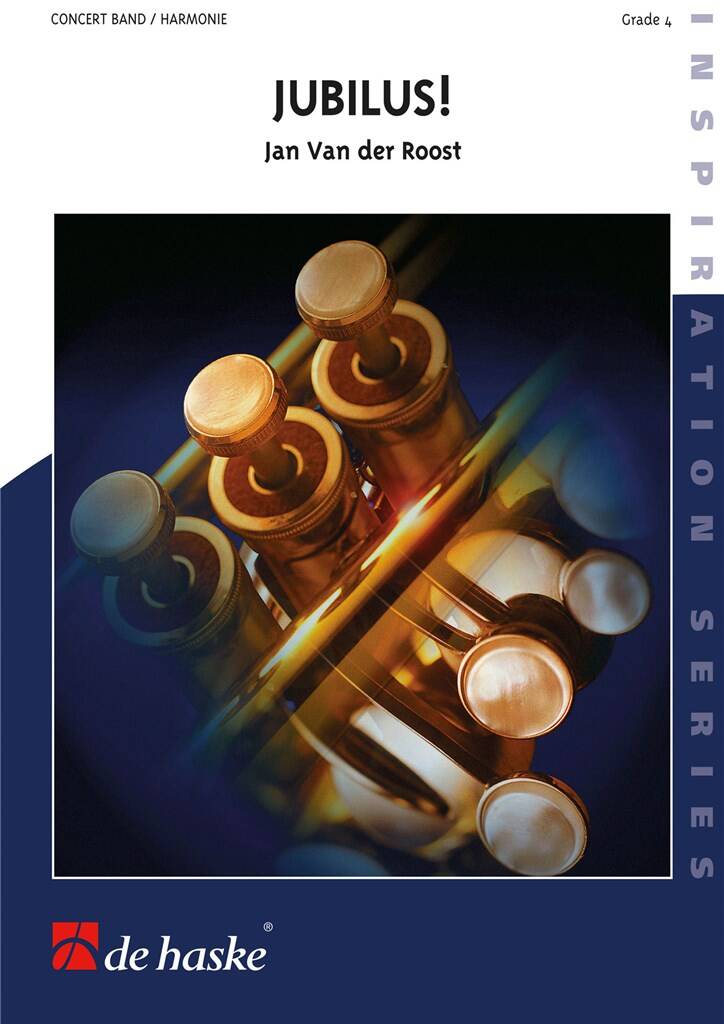 £89.99
£89.99Jubilus! - Jan Van der Roost
Jan van der Roost's new work Jubilus will make an ideal opening piece for any event. It is in a classical ABA form, beginning with a rising brass fanfare which is quickly replaced by a contrasting expressive lyrical theme. The two themes alternate for a few seconds until an exciting new atmosphere is created with the lively allegro. This eventful piece lets you show off many aspects of your player's style and technique without losing overall unity
Estimated dispatch 7-14 working days
-
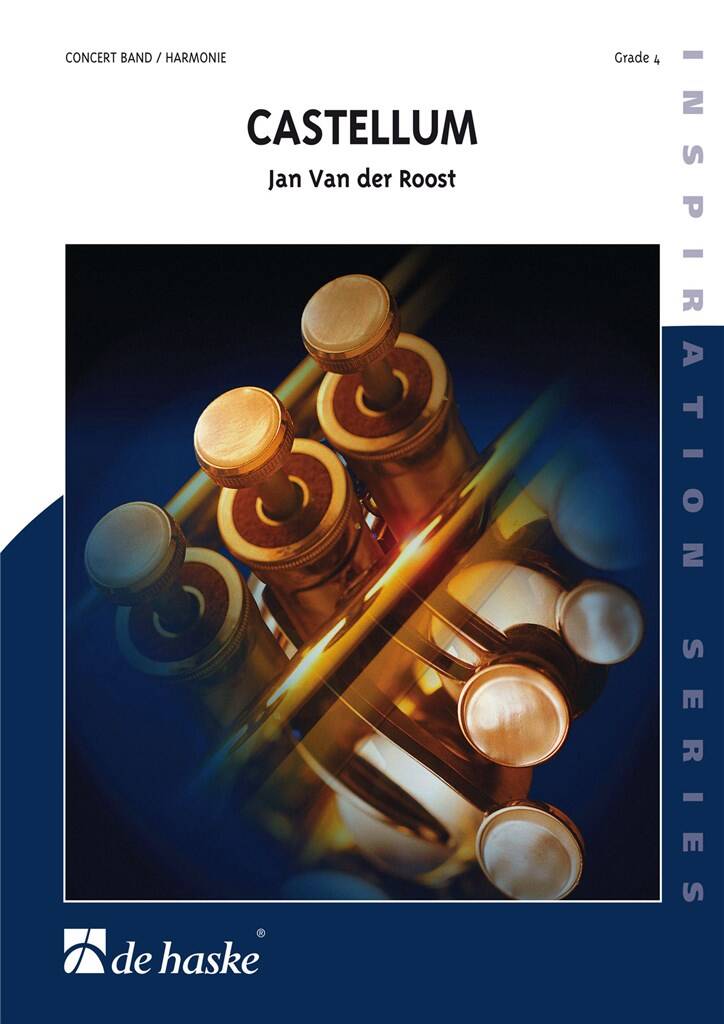 £154.99
£154.99Castellum - Jan Van der Roost
This work consists of two movements. The first part is rather quiet and pastoral in character, written in a gently rocking 12/8 time and expressing the tranquillity of the area around the medieval town of Oudenburg in Belgium. After a beautiful orchestral climax the second section, inspired by the Roman past of Oudenburg, begins. A somewhat oppressive and impending introduction leads to the musical reflection of an army parade: Oudenburg was a so-called "castellum," and the remains of the fortress are still visible in the current town plan. A more dynamic passage follows featuring the low brass. After that, the solemn rhythm of the parade is recaptured, culminating in atriumphant ending.
Estimated dispatch 7-14 working days
-
£76.99
Intrada & Wilhelmus - John Blanken
John Blanken composed Intrada & Wilhelmus in 2002.The title speaks for itself. It's an introduction to the national anthem of The Netherlands; Wilhelmus. In this piece the national anthem is heared two times followed by a short postlude.
Estimated dispatch 7-14 working days
-
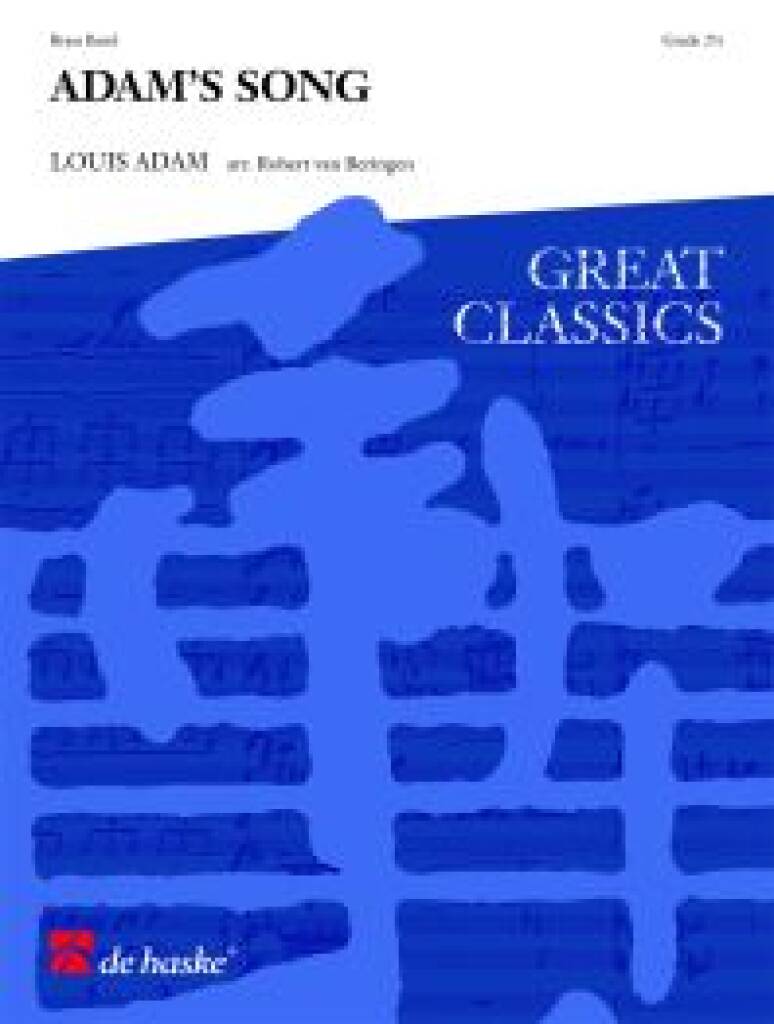 £76.99
£76.99Adam's Song - Louis Adam
French composer, pianist and music teacher Louis Adam worked at the Conservatory of Paris for more than four decades. He wrote two renowned educational piano methods, as well as a number of sonatas for piano and violin. Robert vanBeringen has arranged the adagio movement from a sonatine for piano written by Adam, and given the work the title Adam's Song. Thus, this beautiful, relatively unknown music is now also available for concert bands, a wonderfulrediscovery! Dur: 3:30
Estimated dispatch 7-14 working days
-
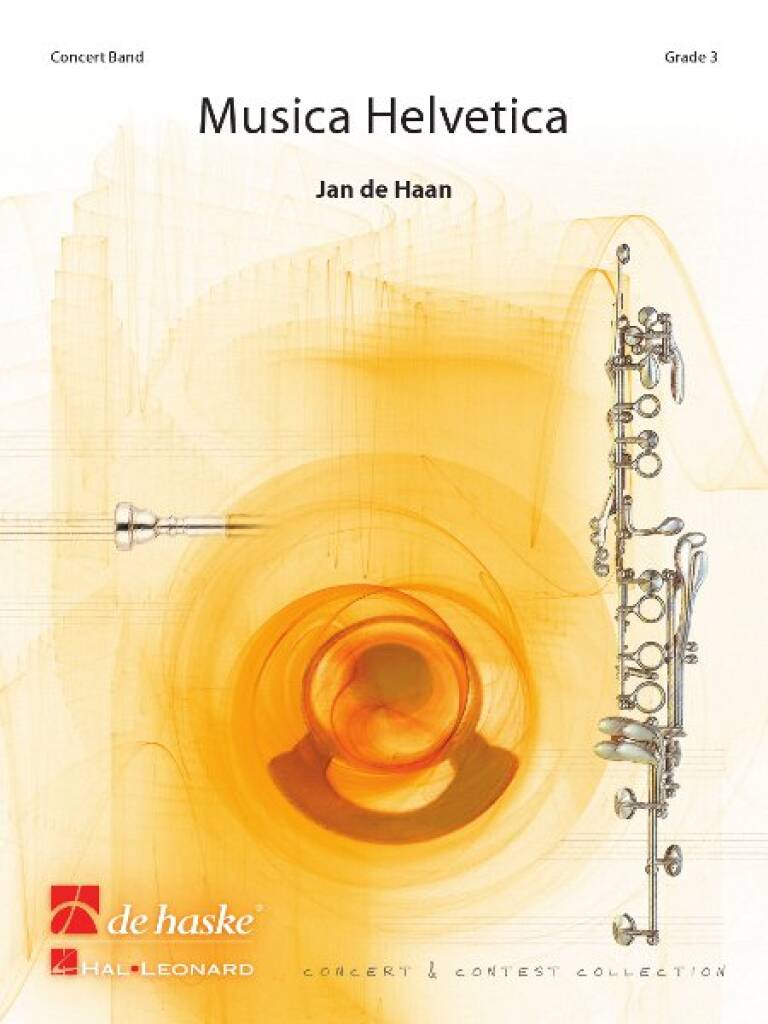 £149.99
£149.99Musica Helvetica - Jan de Haan
Every year a competition for wind orchestras and brass bands takes place in Wallberg, Switzerland. Apart from a hymn and a solo piece, all orchestras also have a compulsory piece to play. The commission to create a compulsory piece for the 2012 competition fell to Jan de Haan. The composition is entitled Musica Helvetica. It takes the form of a three-part concert work, in which the last two parts flow directly from one to the other. The first part, Musica Prima, is a brisk virtuoso opening with jazz flavours woven in. The following section, Musica Sacra, offers a contrast with an extraordinarily colourful instrumentation for the gorgeous main theme. Thefinal part, Musica Alpina, is inspired by the great variety of scenery in Switzerland. With its witty humour it makes a worthy conclusion to this beautiful tryptich.
Estimated dispatch 7-14 working days
-
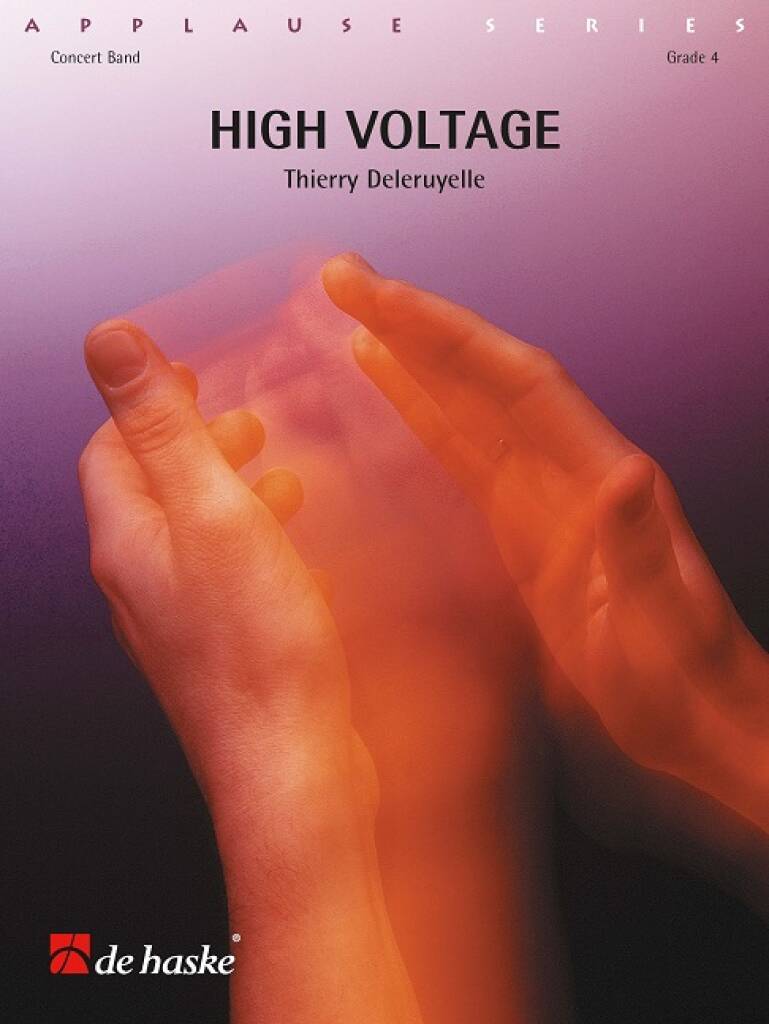 £84.99
£84.99High Voltage - Thierry Deleruyelle
High Voltage is an especially energetic composition in the big band style. The blaring brass and the ornate interplay of the woodwinds lend this work great character and conviction. In the second half of the piece two solos are played: firstlythe tenor saxophone (alternatively alto saxophone), followed by a virtuoso variation in the trombone (alternatively baritone euphonium).
Estimated dispatch 7-14 working days
-
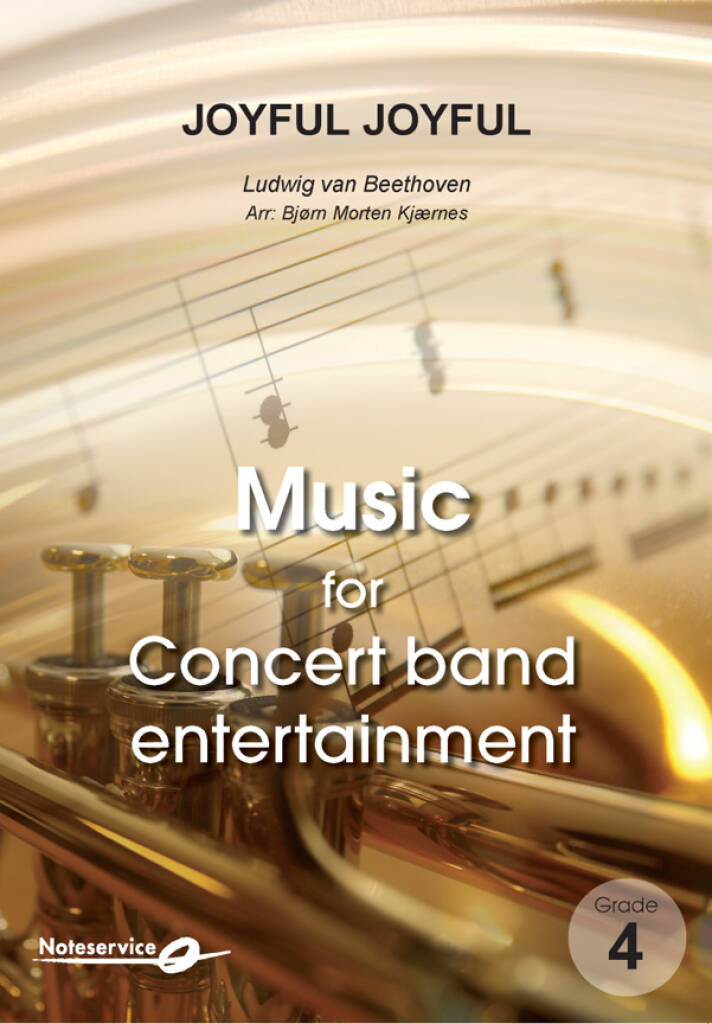 £149.40
£149.40Joyful Joyful - Ludwig van Beethoven
Beethoven's everlasting melody keeps popping up in different arrangements. This one is inspired by the version made to the movie "Sister Act". Gospel at its best!You may use this piece both in church concerts and entertainmentsshows.This is a fine number to practice sixteenths syncopations. Often, most players have similar rhythm and phrasing, but with different pitches. Extended harmonies and ensemble balance are also elements to work on. Two groups havespecial roles: * If you perform the arrangement instrumental, 1st Altosax and Tenorsax are both important. The solos may be played as written or improvised. There is also an optional womens choir arrangement (SSAA) includedin the set.* The bass line is also challenging and very important. Make it groove!
Estimated dispatch 7-14 working days
-
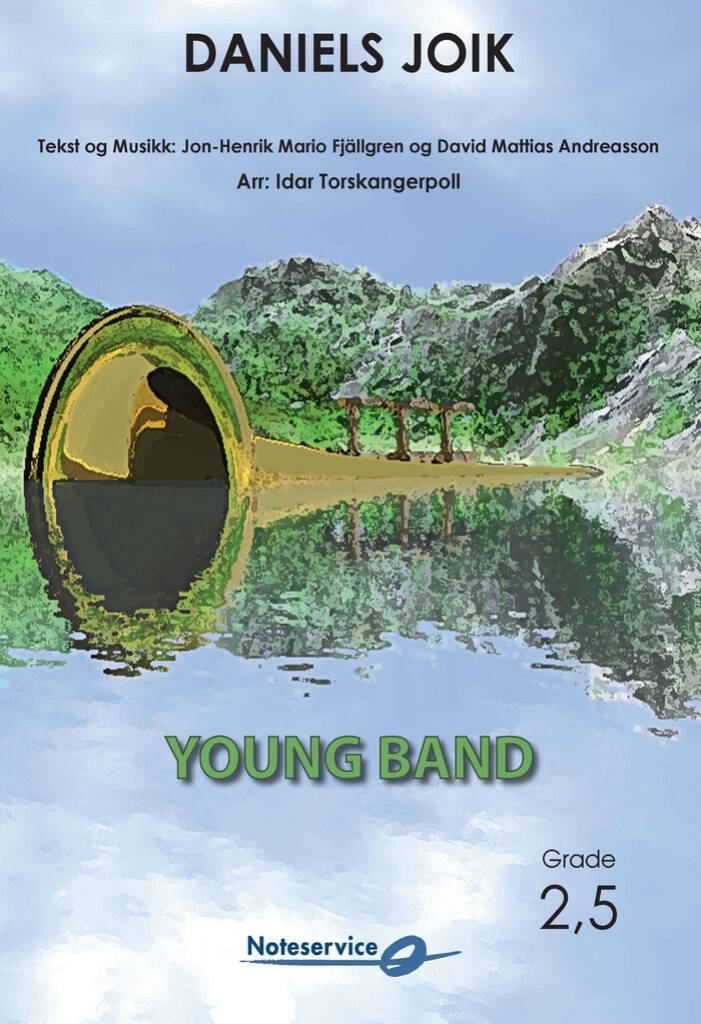 £137.70
£137.70Daniels Joik - Jon-Henrik Fjâllgren
Jon Henrik Mario Fjllgren became instantly well-known after his appearance in Sweden's "Got Talent" where he performed "Daniels Joik" written for his recently passed best friend.Fjllgren was born in Cali, Columbia in 1987 but adopted by a Swedish Sami family and lives now as a reindeer herder, singer and composer. He debuted on stage in 2003, 14 years old and on record two years later.After the success with "Got Talent", he has also participated twice in the Swedish Eurovision Song Contest.This arrangement can be performed in a long or shorter version, for short version cut bars 58-78.
Estimated dispatch 7-14 working days
-
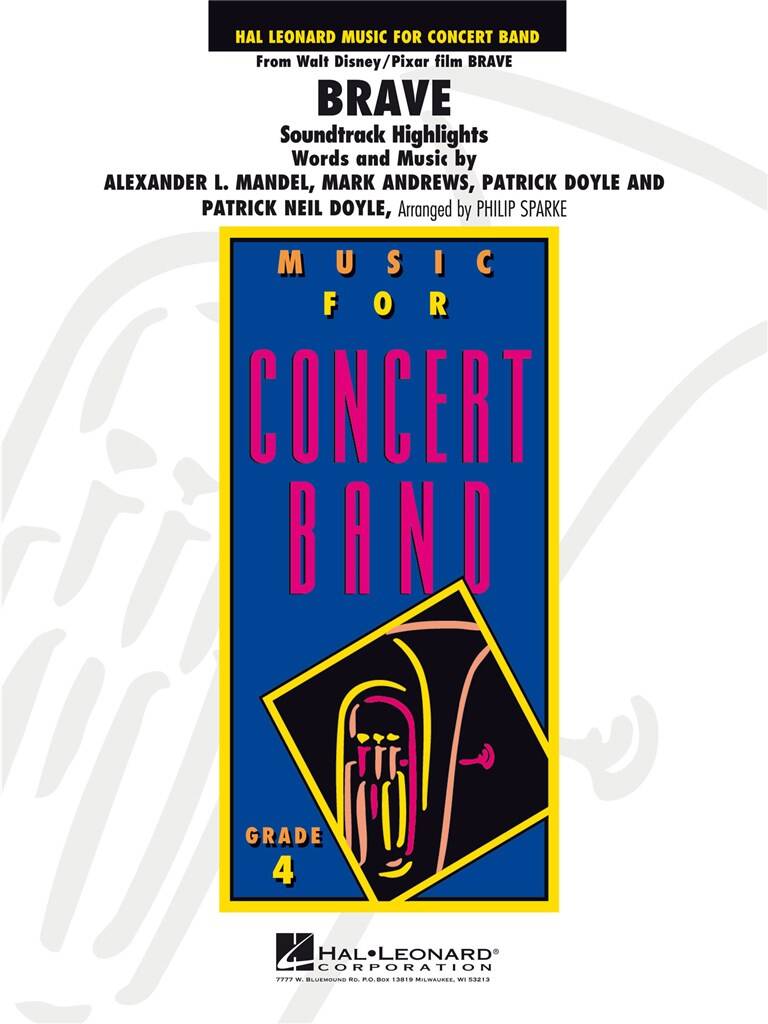 £99.99
£99.99Brave - Patrick Doyle
Patrick Doyle, who has already been nominated for an Oscar and two Golden Globes for his fabulous film music, created the soundtrack for the Disney/Pixar film Brave. The Brit, Philip Sparke, was inspired by the sometimes powerful, other times lyrical and in part celtic-flavoured melodies to put together a stylish medley for concert band, in which the following tunes appear: Fate and Destiny, The Games, Merida's Home, Noble Maiden Fair (A Mhaighdean Bhan Uasal) and Touch the Sky.
Estimated dispatch 7-14 working days
